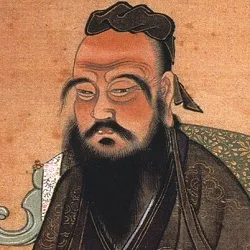- RESEARCHDistance Learning at AIU is enhanced by vast academic resources and innovative technologies build into the Virtual Campus: Hundreds of self-paced courses with video lectures and step by step lessons, thousands of optional assignments, 140,000 e-books, the Social Media & Networking platform allowing collaboration/chat/communications between students, and MYAIU develop students holistically in 11 areas beyond just academics.
- PROGRAMS OFFERED
- Areas of Study
- Courses and Curriculum
- Open Courses
- Register for a Program
- Associate Program
- Associate in Addiction Counseling
- Associate in Agriculture Food And Resources
- Associate in Anti Terrorism Security
- Associate in Behavior Analysis In Special Education
- Associate in Bioethics
- Associate in Climatology
- Associate in Cultural Theological Communication
- Associate in Culinary Arts
- Associate in Ecotechnology
- View all Associates Programs
- Bachelor Program
- Bachelors in Community Development
- Bachelors in Environmental Science
- Bachelor in Education (B.Ed, BS)
- Bachelors in Economics
- Bachelors in Entrepreneurship
- Bachelors in Financial Administration
- Bachelors in Human Resource Management
- Bachelors in Linguistics
- Bachelors in Nutritional Science
- Bachelors in Occupational Health and Safety
- Bachelors in Psychology
- View all Bachelor Programs
- Doctorate Program
- Doctor | of Biology (PhD)
- Doctorate in Business Administration (DBA, PhD)
- Doctor of Economics (PhD)
- Doctor of Electrical Engineering (D.Sc, PhD)
- Doctor of Finance (PhD)
- Doctorate in International Relations
- Doctorate in Information Technology (D.Sc)
- Doctor of Legal Studies (PhD)
- Doctor of Project Management (PhD)
- Doctor of Sociology (PhD, D.Sc)
- Doctorate in Sustainable Natural Resources Management
- View all Doctorate Programs
- Master Program
- Postdoctoral Program
- Postdoctoral in Animal Science
- Postdoctoral in Anti Terrorism Security
- Postdoctoral in Behavior Analysis In Special Education
- Postdoctoral in Bioethics
- Postdoctoral in Blockchain Technology and Digital Currency
- Postdoctoral in Business Management
- Postdoctoral in Cloud Computing
- Postdoctoral in Computer Engineering
- View all Postdoctoral Programs
AIU offers a wide range of majors in areas including the Arts, Business, Science, Technology, Social, and Human studies. More than 120 degrees and programs are available for adult learners at the associate’s, bachelor’s, master’s, doctoral and postdoctoral level. - VIRTUAL CAMPUS
Distance Learning at AIU is enhanced by vast academic resources and innovative technologies build into the Virtual Campus: Hundreds of self-paced courses with video lectures and step by step lessons, thousands of optional assignments, 140,000 e-books, the Social Media & Networking platform allowing collaboration/chat/communications between students, and MYAIU develop students holistically in 11 areas beyond just academics.
- ALUMNI
The world is YOUR campus!”, that is the message of AIU’s month magazine Campus Mundi. Hear the voices and see the faces that make up AIU. Campus Mundi brings the world of AIU to you every months with inspirational stories, news and achievements by AIU members from around the world (students and staff are located in over 200 countries).
Government and politics in Africa
Government and Politics in Africa: Nationalism and Political Frameworks
The document “Government and Politics in Africa” by Meschac Moukoko explores the evolution of governance on the continent, emphasizing the rise of African nationalism in the mid-19th century among the black middle classes. It examines the processes of nation-state building post-colonization, the various political frameworks, including absolute and constitutional monarchies as well as presidential systems, which shape governance in African countries. The text outlines the struggles nationalists faced, including tribal divisions and ethnicism. Additionally, it highlights recent democratic progress and challenges, including attempted coups and elections, reflecting the complexities of political development in Africa today.

The document “Government and Politics in Africa” authored by Meschac Moukoko provides an insightful examination of the political landscape in African nations, addressing the historical and contemporary dynamics of governance on the continent.
- Course Objectives and Description: The text begins by outlining the goals of the course, which aims to enlighten students about the rise of African nationalism, identify various political ideologies, and evaluate governance issues in Africa. The course introduces the students to the historical context of modern state formation in Africa, discussing the impact of colonialism and subsequent decolonization movements.
- Rise of African Nationalism: It details the emergence of nationalist thoughts among the black middle classes, particularly in West Africa, during the mid-19th century. It traces the influence of African-American and Afro-Caribbean intellectuals who inspired early African patriots to pursue nation-state formation. However, these nationalists faced significant challenges, including ethnic divisions and the enduring influences of colonialism that had fostered tribalism and competition among ethnic groups.
- Nation-State Building: The document discusses the processes involved in nation-state building in Africa, highlighting both economic and social factors. It examines the differing experiences of various countries due to unique colonial legacies, noting that while some nations, like Cameroon, have experienced successful integration, others, such as Nigeria and Sudan, have faced significant ethnic and political conflicts.
- Political Frameworks: Moukoko outlines several political frameworks adopted in Africa, including absolute monarchies where monarchs hold significant power, and constitutional monarchies that operate under a legal framework that limits the ruler’s authority. The document also discusses democratic frameworks, such as presidential systems, where the executive has substantial powers, and parliamentary systems characterized by shared governance structures.
- Democratic Progress and Challenges: The text underscores recent advancements in democratic practices across African nations, using Senegal’s local elections as a case study. However, it also addresses the continual withdrawal from democratic norms in some regions, marked by autocratic governance and the emergence of leaders who manipulate democratic systems for personal gain.
- Conclusion and References: The document concludes by emphasizing the importance of culturally relevant and integrative political systems suited to the unique contexts of African nations. A comprehensive list of references supports the course content, reflecting scholarly works that delve into democracy, governance, and political structures across the continent.
Overall, Moukoko’s work provides a thorough analysis of the complexities of governance and politics in Africa, blending historical insights with contemporary realities, and illuminating the ongoing challenges and opportunities within the continent’s political systems.
Atlantic International University
Get to know the AIU experience
Contact Us Today!
We understand how busy adults do not have time to go back to school. Now, it’s possible to earn your degree in the comfort of your own home and still have time for yourself and your family. The Admissions office is here to help you, for additional information or to see if you qualify for admissions please contact us. If you are ready to apply please submit your Online Application and paste your resume and any additional comments/questions in the area provided.
Pioneer Plaza
900 Fort Street Mall 905
Honolulu, HI 96813
800-993-0066 (Toll Free in US)
808-924-9567 (Internationally)
808-947-2488 (Fax)
AIU Success Stories







Contact Us Today!
Begin Your Journey!
AIU’s Summer of Innovation and Growth gives you the ability to earn up to $5000 in tuition credit by completing free lessons and courses.
Whether you’re looking to acquire new skills, advance your career, or simply explore new interests, AIU is your gateway to a world of opportunities. With free access to 3400 lessons and hundreds of courses the ability to earn credits and earn certificates there’s no better time to start learning.
Join us today as a Guest Student and take the first step towards a brighter, more empowered future.
Explore. Learn. Achieve.
Degrees

Contact Us
Atlantic International University
900 Fort Street Mall 905 Honolulu, HI 96813 [email protected]
Quick Links
Home | Online Courses | Available Courses | Virtual Campus | Career Center | Available Positions | Ask Career Coach | The Job Interview | Resume Writing | Accreditation | Areas of Study | Bachelor Degree Programs | Masters Degree Programs | Doctoral Degree Programs | Course & Curriculum | Human Rights | Online Library | Representations | Student Publication | Sponsors | General Information | Mission & Vision | School of Business and Economics | School of Science and Engineering | School of Social and Human Studies | Media Center | Admission Requirements | Apply Online | Tuition | Faculty & Staff | Distance Learning Overview | Student Testimonials | AIU Blogs | Register for Program | Privacy Policy | FAQ



















